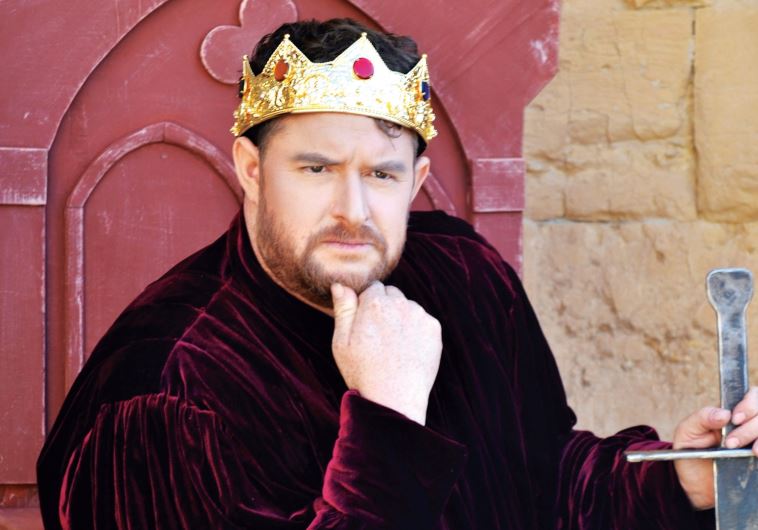Musical messages, with liberal dashes of pomp, by way of ‘Camelot’
Despite coming from the “wrong” side of the British Channel, Amsallem is well and truly in the Python camp.
 Displaying an admirable amount of backbone: King Arthur (Brett Goldman) surveys his kingdom(photo credit: AVITAL COHEN)
Displaying an admirable amount of backbone: King Arthur (Brett Goldman) surveys his kingdom(photo credit: AVITAL COHEN)